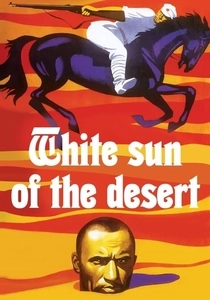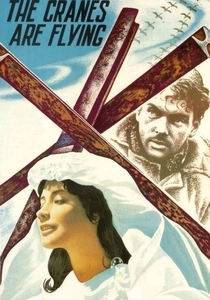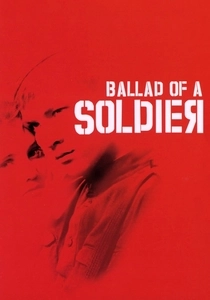The Soviet Union produced a wealth of films that not only entertained but also reflected the ideals and values of the era. This curated collection of 10 Soviet films delves into the theme of nobility, showcasing characters who exhibit extraordinary acts of honor, courage, and selflessness. These stories, rich with moral lessons, continue to resonate with audiences today, offering a glimpse into the heart of human virtue and the timeless appeal of doing what's right, even when it's hard.

The White Sun of the Desert (1970)
Description: This adventure film set in Central Asia features a Red Army soldier who, through his actions, demonstrates the nobility of protecting the weak and upholding justice in a lawless land.
Fact: The film's theme song became an anthem for Russian cosmonauts, played during their space missions.
 Watch Now
Watch Now 
The Dawns Here Are Quiet (1972)
Description: This war drama showcases the bravery and nobility of a group of female anti-aircraft gunners, highlighting their sacrifice and dedication to duty.
Fact: The film was based on a novel by Boris Vasilyev, which itself was inspired by real events during World War II.
 Watch Now
Watch Now 
The Cranes Are Flying (1957)
Description: Set during World War II, this film tells the story of Veronika, who faces the hardships of war with grace and resilience, showcasing the nobility of spirit in the face of personal loss and societal upheaval.
Fact: It was the first Soviet film to win the Palme d'Or at the Cannes Film Festival, highlighting its international acclaim.
 30 Days Free
30 Days Free 
The Ballad of a Soldier (1959)
Description: This poignant war drama follows a young soldier, Alyosha, who is granted a brief leave to visit his mother. His journey is filled with acts of kindness and self-sacrifice, embodying the spirit of nobility in the face of adversity.
Fact: The film was nominated for an Academy Award for Best Original Screenplay, and its director, Grigori Chukhrai, was awarded the Best Director at the Cannes Film Festival.
 30 Days Free
30 Days Free 
The Chairman (1964)
Description: This film portrays the life of a collective farm chairman, focusing on his integrity and the noble pursuit of improving the lives of his community amidst political pressures.
Fact: The role of the chairman was played by Mikhail Ulyanov, who later became a prominent figure in Soviet cinema.
 30 Days Free
30 Days Free 
The Irony of Fate (1975)
Description: While primarily a romantic comedy, this film subtly explores themes of honor and integrity through the characters' decisions, showcasing how nobility can be found in everyday life and choices.
Fact: It has become a New Year's Eve tradition in Russia, with millions watching it annually.
 30 Days Free
30 Days Free 
The Ascent (1977)
Description: This harrowing tale of two Soviet partisans during World War II captures the essence of nobility through their struggle for survival and the ultimate sacrifice one makes for the other, reflecting the highest form of human solidarity.
Fact: Larisa Shepitko, the director, tragically died in a car accident shortly after the film's release, leaving behind a powerful legacy.
 30 Days Free
30 Days Free 
The Shield and the Sword (1968)
Description: This spy thriller series showcases the noble acts of Soviet intelligence officers during World War II, emphasizing their dedication to their country and the sacrifices they make.
Fact: The series was so popular that it led to the creation of a sequel, further exploring the characters' adventures.
 30 Days Free
30 Days Free 
The Red Tent (1969)
Description: Based on the true story of the airship Italia's crash, this film explores themes of human nobility through the rescue efforts and the moral dilemmas faced by the survivors.
Fact: It features an international cast, including Sean Connery, showcasing the film's global appeal.
 30 Days Free
30 Days Free 
The Forty-First (1956)
Description: This film tells the story of a sniper in the Red Army who must decide the fate of a captured White Army officer, exploring themes of honor, duty, and the nobility of mercy.
Fact: It was remade in 2005, highlighting its enduring appeal.
 30 Days Free
30 Days Free 








